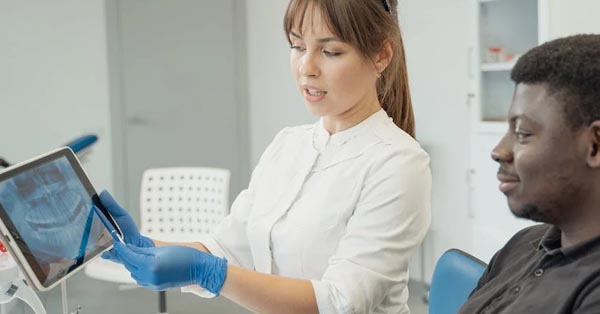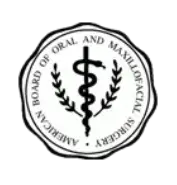How Safe Are Dental X-Rays?
By: 123Dentist
As long as dental x-rays are used properly together with necessary safety precautions, its effect is extremely safe. Discuss the use of this device with your dentist so he can evaluate the factors if you need one. The Oral Surgery DC Team
Dental x-rays are a common diagnostic procedure that is considered extremely safe. Digital dental x-rays have very low doses of radiation, producing just a fraction of what you are exposed to in other imaging procedures. If you're worried about whether you need dental x-rays, or wondering if you should forego this procedure due to other medical conditions, it's helpful to dive a little deeper into what dental x-rays involve, why they're performed, and how they're best handled.
When these x-rays are performed properly with adequate safety precautions in place, there's very little cause for concern. A routine examination with four bitewing x-rays exposes you to roughly the same amount of radiation you will experience during one to two hours on an airplane.
Who Needs Dental X-Rays
Dental x-rays are used diagnostically to help dentists see issues that are otherwise nearly invisible to the naked eye. Adults receive dental x-rays so dentists can better identify and treat various issues. Using these x-rays, your healthcare provider can see:
- Areas of decay, including those in between teeth or under a filling
- Bone loss associated with gum disease
- Abscesses, which are infections at the root of the tooth or between the tooth and gum
- Tumors
- Changes in the root canal
Without an x-ray, many of these problems could go undiagnosed. With an x-ray as a reference, dentists are also better equipped to prepare tooth implants, dentures, braces, and other similar treatments.
Dental X-Rays and Children
Many parents are concerned about the impact of dental x-rays on children. Children are more sensitive to radiation. However, the amount of radiation in a dental x-ray is still considered safe for a child. As children's jaws and teeth are continuously changing, it's important to keep an eye on their development. These x-rays perform many important purposes for young patients. They help dentists to:
- Make sure the mouth is large enough to accommodate incoming teeth
- Monitor the development of wisdom teeth
- Determine whether primary teeth are loosening properly to accommodate new permanent teeth
- Identify decay and gum disease early
It's important for children to visit the dentist regularly, and to get x-rays as recommended by the dentist. The exact schedule for these x-rays will vary depending on the child's individual needs.
Dental X-Rays During Pregnancy
Pregnant women are generally advised to avoid dental x-rays. Though the radiation is minimal, it's best to avoid all exposure when possible for the health of the developing fetus. For this reason, it's important to tell your dentist if you are or may be pregnant.
However, there are some instances where pregnant women should still have dental x-rays performed. If you have a dental emergency or are in the middle of a dental treatment plan, you may still need x-rays during your pregnancy. Discuss the issue with your dentist to determine the best way to proceed. It's crucial that you balance both your dental and prenatal health. Women with periodontal disease are at a higher risk of adverse pregnancy outcomes, so you shouldn't neglect your teeth during pregnancy.
Your dentist can take greater precautions, such as using a leaded apron and thyroid collar, for all x-rays taken during your pregnancy if the procedure is deemed necessary. Keeping your dentist informed at all times is the best way to proceed.
Safety Precautions with Dental X-Rays
There are many things that your dentist can do to minimize the radiation from x-rays. Taking a single image rather than multiple images decreases exposure significantly. You can also speak to your dentist about using the lowest radiation setting possible, particularly for children. Leaded coverings can protect certain parts of your body from radiation.
Determining Whether X-Rays are Necessary
The best way to minimize radiation exposure from dental x-rays is to make sure these are only done when necessary. There is no set schedule for dental x-rays. Rather, it's left to the healthcare provider to make an informed decision as to whether the patient needs x-rays with their examination. Factors that your dentist will consider include:
- Age
- Stage of dental development
- History of oral health
- Risk factors for various conditions
- Presenting symptoms
One study revealed that performing a careful clinical evaluation of the patient can reduce the need for x-rays as much as 43 percent without any increase in the rate of undiagnosed diseases. So, if you're concerned about exposure, ask your dentist to perform a visual examination before ordering x-rays. But keep in mind that there are several issues that there are many conditions that would likely only be diagnosed through x-rays.
To further minimize your need for x-rays, if you have x-rays from a previous dentist, make sure to transfer these to any new provider to eliminate the need for repeat procedures.
Dental x-rays are considered extremely safe. However, it's important to understand the purpose of any procedure that will expose you to radiation. Don't hesitate to discuss the need for dental x-rays with your dentist to better understand how he or she can help protect and improve your oral health.
Source: https://www.123dentist.com/how-safe-are-dental-x-rays/






4.9 Stars
based on 134 reviews
5 Stars
based on 11 reviews
5 Stars
based on 11 ratings